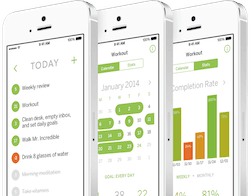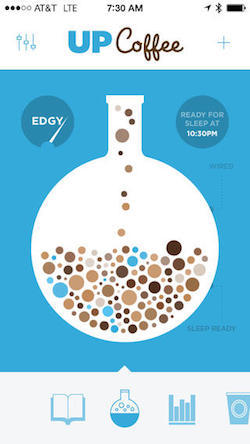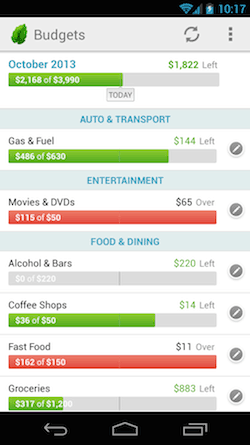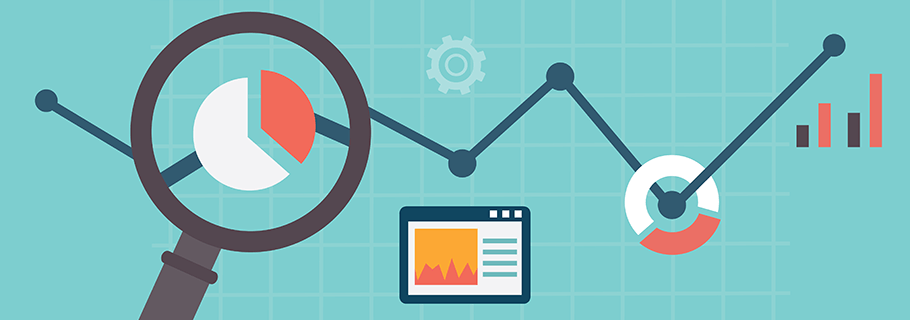One of the fascinating abilities we have in this digital world is quantifying our lives in new ways. Today, more than ever, we can assemble an amazing amount of data about ourselves. I have a fascination with data and measurement, so often find myself turning to such tools to learn about my life in the hope that what I learn will allow me to live better.
I have had to put some thought into the consequences of a quantified life and whether it can help me be a sanctified Christian. I am convicted that if these tools are used well, they can be very helpful. Today I will give you a glimpse of some of these tools and how I use them. Before I do that, though, let me be clear: I do not use all these tools all the time. In most cases I find that committing to the tools for a defined period of time allows me to get valuable snapshots of my life. I will use some of these tools for a few weeks, and then put them aside for a couple of months. But just those brief snapshots give me data that helps me live a deliberate and self-controlled life.
Habits
 As human beings, we are creatures of habits, and every Christian is responsible to develop good habits and patterns. There are many apps that allow you to track your habits, and the one I have found most effective is Habit List. Habit List allows you to input a list of habits you would like to measure. You can input daily tasks (read my Bible), weekly tasks (update the family budget) or even tasks you would like to do three times per week, or only on Wednesday and Friday. At the end of your day you can open the app and check-off those tasks you successfully completed. It is an ideal way to track how often you actually read your Bible and pray, how often you do family devotions, how often you exercise, and so on. Another interesting option is Reporter which asks you defined questions at random times, as well as defined questions at the beginning and end of the day; if you set it up with the right questions, you can learn all kinds of interesting things about yourself (Are you listening to music right now? Are you alone or with people right now? How much energy do you have right now? How would you rate your use of time today?)
As human beings, we are creatures of habits, and every Christian is responsible to develop good habits and patterns. There are many apps that allow you to track your habits, and the one I have found most effective is Habit List. Habit List allows you to input a list of habits you would like to measure. You can input daily tasks (read my Bible), weekly tasks (update the family budget) or even tasks you would like to do three times per week, or only on Wednesday and Friday. At the end of your day you can open the app and check-off those tasks you successfully completed. It is an ideal way to track how often you actually read your Bible and pray, how often you do family devotions, how often you exercise, and so on. Another interesting option is Reporter which asks you defined questions at random times, as well as defined questions at the beginning and end of the day; if you set it up with the right questions, you can learn all kinds of interesting things about yourself (Are you listening to music right now? Are you alone or with people right now? How much energy do you have right now? How would you rate your use of time today?)
Fitness
If there is any area of life Christians tend to neglect, I think it must be the area of fitness; we care for our souls and minds, but too often neglect our bodies. Wearable fitness trackers represent a new and growing category of devices that mean to measure and motivate physical activity. They primarily track data such as the number of steps you take during the course of a day, though they can also track metrics like how much high-intensity movement you had during your day. Many of them also track your sleep habits, provided you wear it through the night. These devices are ideal for tracking your physical exercise and motivating fitness; it may be that your life is even more static than you thought it was. (Examples: Fitbit, Jawbone UP 24) If you prefer not to use a device, there are many apps that allow you to manually input the details of your exercise and activities (Example: RunKeeper). Also, most up-to-date mobile phones offer many of the basic functions such as tracking your steps.
Diet
 I said that if there is any area of life Christians tend to neglect, it is the area of physical fitness, but diet would have to be a close (and closely-related) second. Speaking personally, I have very little interest in tracking every calorie that I consume, but have found it very valuable to track my eating in bursts—two weeks every few months, perhaps. For a short period of time I’ll try to figure out the basic nutritional information for everything I eat, and input into an app. This gives me a snapshot of my eating habits and allows me to consider whether I am eating too much, too little (Ha!), or the wrong kinds of things. My Fitness Pal is a good option here, though if you use any of the devices or apps I listed under Fitness, they may have this functionality as well. UP Coffee is a great option for tracking your caffeine and ensuring you are de-caffeinated by the time you go to bed. If you have committed to drinking more water (and who hasn’t at one time or another) try Waterlogged.
I said that if there is any area of life Christians tend to neglect, it is the area of physical fitness, but diet would have to be a close (and closely-related) second. Speaking personally, I have very little interest in tracking every calorie that I consume, but have found it very valuable to track my eating in bursts—two weeks every few months, perhaps. For a short period of time I’ll try to figure out the basic nutritional information for everything I eat, and input into an app. This gives me a snapshot of my eating habits and allows me to consider whether I am eating too much, too little (Ha!), or the wrong kinds of things. My Fitness Pal is a good option here, though if you use any of the devices or apps I listed under Fitness, they may have this functionality as well. UP Coffee is a great option for tracking your caffeine and ensuring you are de-caffeinated by the time you go to bed. If you have committed to drinking more water (and who hasn’t at one time or another) try Waterlogged.
Sleep
Many of the fitness trackers listed above offer sleep tracking—based on your movement at night, they will offer a basic measure of the quality of your sleep, as well as the time you went to sleep, the time you woke up, and the number of times you were awake in the night. As an added benefit, many of them offer a vibrating alarm function that will wake you, but not your spouse. There are other sleep-tracking apps such as Sleep Cycle that require you to leave your mobile phone on your mattress (you slide it under the fitted sheet); they offer surprisingly accurate metrics on your sleep. There are even dedicated devices you can wear at night that serve as sleep-trackers and alarms. As someone who struggles to sleep, I have often turned to this kind of information to try to help determine how I can sleep more and better.
Time
Measuring time well is an important component to using time well. As Christians, we know that the Lord expects us to faithfully steward the time given to us and today there are many excellent apps that can help. Some are entirely manual while others use some degree of automation. The one I use most is Toggl. Every couple of months I will use Toggl for two or three weeks and carefully track my time (sometimes every waking minutes and sometimes only my work-related time). This helps me understand where my time is going and whether I am giving adequate attention to each of my areas of responsibility. Another helpful category is apps that track what you do online and then present a list of the sites you visited and how much time you spent at each; or they present a list of the programs you have used and how much time you used each of them. The truth can hurt. Try RescueTime if you need help here.
Finances
 If we are responsible to steward our bodies, minds and time, the same is true of our money. There are hundreds of great apps that can help you track where your money comes from and where it goes. The most popular is Mint, a free and beautifully-put-together service from Intuit. That said, You Need a Budget is still, in my estimation, the best and most complete option, especially if you want to carefully budget your money.
If we are responsible to steward our bodies, minds and time, the same is true of our money. There are hundreds of great apps that can help you track where your money comes from and where it goes. The most popular is Mint, a free and beautifully-put-together service from Intuit. That said, You Need a Budget is still, in my estimation, the best and most complete option, especially if you want to carefully budget your money.
And we are only just getting started—the era of quantification is really only beginning. I am convinced that many of these tools, when used wisely, can benefit us and motivate obedience to God.
Let me say just a word about the dangers of these apps. I think the primary danger is that, unless we guard ourselves, we may eventually use data legalistically. We may eventually begin to think that our standing before God is based on the right measurements; we may take refuge in our habits instead of in our Savior. This is one of the reasons that I tend to use these apps sporadically rather than consistently. I do not want to be conformed to the image of an app, but to the image of Jesus Christ. I value the tools only so far as they are driving me to the cross.
Do you ever use apps or devices like these ones? How do they help or hinder your Christian life?
Measurement image credit: Shutterstock










